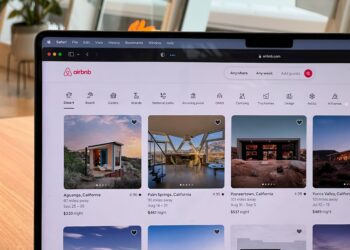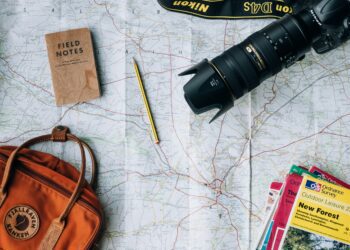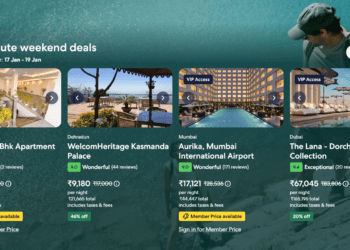
Introduction
Germany is a country with a rich history and culture. From its stunning scenery to its delicious food, there is much to love about this European nation. If you are thinking about visiting Germany, here is a guide to help you plan your trip. In this guide, we will cover everything from the best time to visit Germany to the must-see sights. We will also provide some helpful tips on what to expect when you are traveling in Germany. So, whether you are looking for information on transportation or accommodation, this guide has you covered.
Germany’s must-see attractions
Berlin – The capital of Germany, Berlin is a must-see for any visitor. With its rich history, unique culture, and exciting nightlife, there is something for everyone in Berlin.
The Brandenburg Gate – One of the most iconic landmarks in Germany, the Brandenburg Gate is a must-see for anyone visiting Berlin.
Munich – The capital of Bavaria, Munich is a beautiful city with a lot to offer visitors. From its world-famous Oktoberfest to its many museums and historic sites, Munich is a must-visit for anyone interested in German culture.
The Black Forest – A beautiful forest located in southwest Germany, the Black forest is perfect for nature lovers or anyone looking to escape the hustle and bustle of city life. With its towering trees and scenic views, the Black Forest is a must-see for any visitor to Germany.
The best time to visit Germany

If you’re looking to travel to Germany, you may be wondering when the best time to visit is. The answer really depends on what you’re looking for in a trip. For example, if you want to experience the country’s vibrant nightlife and festive atmosphere, you may want to plan your trip around Oktoberfest. However, if you’re more interested in exploring the countryside and seeing the historic sites, spring or fall may be better suited for your travel plans.
In general, the best time to visit Germany is between May and September. during these months, the weather is ideal for spending time outdoors and touring around. Additionally, many of the country’s biggest festivals take place during this time period, so there will be plenty of opportunities to experience German culture firsthand. Of course, peak tourist season also means that hotels and other attractions will be more crowded and expensive during these months.
If you’re looking to avoid the crowds (and save some money), consider planning your trip for April or October instead. The weather is still pleasant during these months, but there will be fewer tourists which means shorter lines and lower prices at popular attractions. Just keep in mind that some businesses (including many restaurants and cafes) may close down for a few weeks in August as many Germans take their annual summer vacation during this time.
What to pack for your trip to Germany
When visiting Germany, it is important to pack items that will keep you comfortable in the varied weather conditions. The average temperature in Germany ranges from 32-50 degrees Fahrenheit, so be sure to pack both warm and cool weather clothing. It is also a good idea to pack rain gear, as precipitation is common throughout the year. In terms of footwear, comfortable walking shoes are a must, as you will likely do a lot of sightseeing while in Germany. Finally, don’t forget to bring your passport and any other necessary travel documents.
How to get around in Germany
If you’re planning a trip to Germany, one of the first things you’ll need to figure out is how to get around. Germany is a large country with a well-developed transportation infrastructure, so there are several options for getting around, including trains, buses, cars, and bicycles.
The best way to get around Germany depends on your budget and your travel plans. If you’re just visiting major cities like Berlin, Munich, or Frankfurt, then the train is probably your best option. Train travel in Germany is fast, efficient, and relatively affordable.
If you’re planning on traveling outside of the major cities or exploring more of the countryside, then renting a car may be a better option. Germany has an excellent network of roads and highways, so driving is a convenient way to see more of the country. Just be sure to familiarize yourself with the local traffic laws before getting behind the wheel!
And finally, if you’re looking for a more active way to explore Germany, consider biking. There are many dedicated bike paths throughout the country, so it’s easy to find a route that suits your fitness level and interests. Biking is also a great way to see some of the smaller towns and villages that are off the beaten path.
Tips for visiting Germany on a budget

There are plenty of ways to save money when visiting Germany, and with a little advance planning, it is possible to visit on a budget. Here are a few tips:
• Travel outside of the peak tourist season. Prices for accommodation and travel are typically lower in the spring and fall.
• Look for discounts. There are many ways to find discounts on hotels, transportation, and attractions. Check websites like Groupon and Living Social for deals.
• Consider alternate accommodation options. Vacation rentals, hostels, and camping can all be viable options that will save you money.
• Don’t overspend on souvenirs. It’s easy to get caught up in the moment and spend too much on trinkets that you’ll likely never use. Stick to a budget when shopping for souvenirs.
• Eat like a local. Dining out can be one of the biggest expenses when traveling. To save money, eat at local cafes and markets instead of restaurants.






















